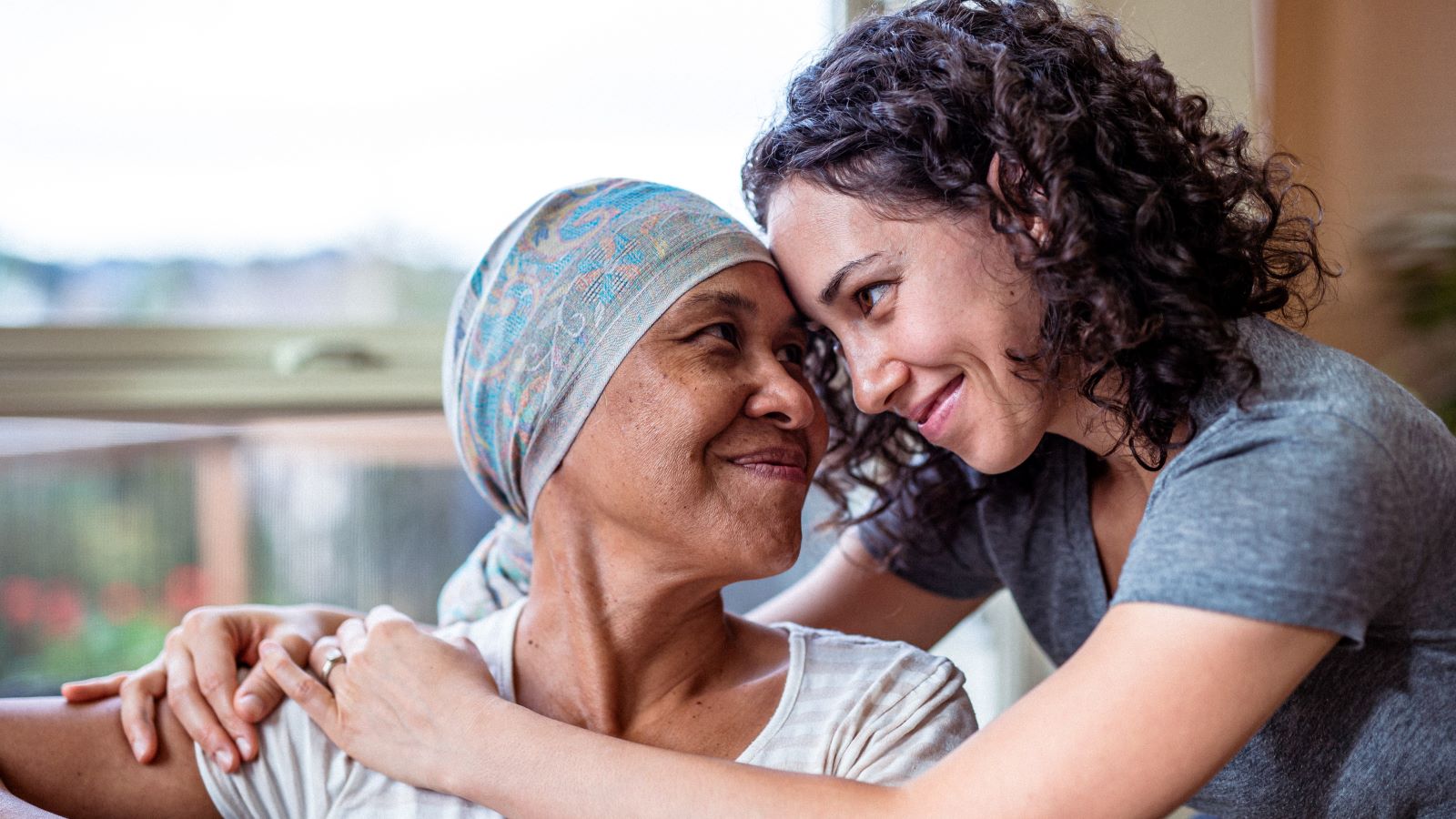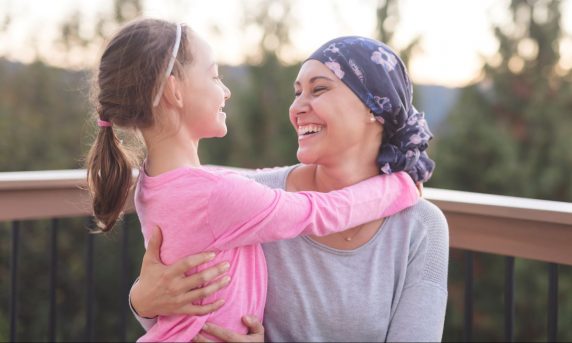When someone you love has cancer, it affects you, too.
You want to be there for them – but it’s not always easy to know how.
With guidance from Caitlin McPhelimy, LPC, cancer support services program manager at Hartford HealthCare’s Cancer Institute, here’s how to start.
1. Be there to simply listen.
When someone you love is facing cancer, your presence can speak louder than words.
“Let them vent – their fears, frustrations, hopes or just the small stuff, without any pressure to offer advice or answers,” says McPhelimy. “You don’t need to have a response or try to fix anything, especially if it’s not fixable. Just listening can make a huge difference in reducing stress.”
2. Offer practical and specific help.
Even with the best intentions, saying “let me know if you need anything” can feel too vague – and many people won’t reach out.
“Offering to do simple things occasionally – like grabbing groceries or picking up the kids from school –will be a huge relief,” says McPhelimy. “Giving your loved one the option to accept rather than request help shows you’re thinking of them and takes away pressure and guilt.”
3. Stay informed.
Learning about their diagnosis shows you care.
“Join them at appointments if they’re willing to have you, and offer to take notes,” says McPhelimy. “Understanding what they’re facing makes it easier to have honest conversations and be truly present. It shows you’re walking this path with them – not just beside them.”
> Related: 6 Questions to Ask After a Cancer Diagnosis
4. Encourage self-care.
Cancer can make it hard to focus on anything beyond treatment, even essential self-care.
“Remember, all involved need to have a balance between activities focused on health and overall well-being. Survival mode includes getting rest and doing things that bring joy,” says McPhelimy. “Sometimes, everyone just needs a gentle nudge for a little extra TLC.”
5. Be patient and flexible.
Cancer journeys don’t follow a script – plans change, and emotions can shift quickly.
“Cancer care is a marathon, not a sprint,” says McPhelimy. “Some days they’ll want company, other days, space. Be the person who shows up and keeps showing up, open to whatever might be supportive in the present moment.”
Things to avoid when your loved one has cancer.
Supporting someone with cancer isn’t always easy, and that’s okay.
Here are a few common missteps to avoid, according to McPhelimy:
- Avoid giving unsolicited advice or sharing stories about others with cancer.
- Don’t minimize their feelings or pressure them to stay positive.
- Acknowledge their diagnosis instead of pretending everything is normal.
“It’s understandable to feel nervous about saying or doing the wrong thing,” says McPhelimy. “You don’t need the perfect words or the perfect actions. What matters most is that you are present.”
Care for yourself, too.
Being there for someone with cancer can take a lot out of you, emotionally and physically.
“You can’t help anyone if you are running on empty,” says McPhelimy. “The best supportive care starts with self-care. Remember, self-care is not selfish – it’s essential.”
Here are simple ways to protect your well-being:
- Take breaks to rest and recharge.
- Lean on friends or a support group.
- Know your limits and express them with care.
“When someone you love has cancer, open conversations matter,” says McPhelimy. “Talking honestly about what you both need helps you show up for each other and reminds them they’re not facing this alone.”



